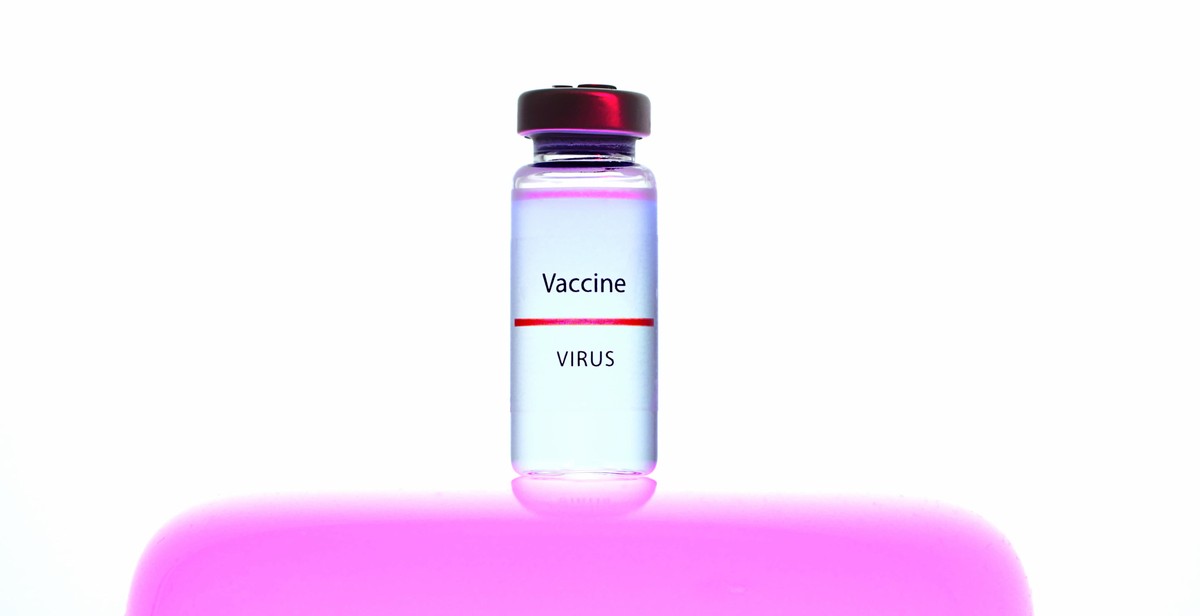How to Support Vaccine Research: Understanding the Importance of Clinical Trials
As someone who has been working in the healthcare industry for many years, I have seen firsthand the incredible impact that vaccines can have on our society. Vaccines have been responsible for eradicating deadly diseases and improving the overall health of our population. However, the development of vaccines is a complex and time-consuming process that requires a significant amount of resources and funding. One crucial aspect of vaccine development is the clinical trial phase, which is essential for determining the safety and efficacy of a vaccine.
The Importance of Clinical Trials
Clinical trials are a critical step in the vaccine development process. During this phase, vaccines are tested on human subjects to evaluate their safety, efficacy, and potential side effects. Clinical trials are conducted in three phases, each with a specific objective.
- Phase 1: This phase involves a small group of healthy volunteers who are given the vaccine to test its safety and determine the appropriate dosage.
- Phase 2: In this phase, a larger group of volunteers receive the vaccine, and researchers evaluate its effectiveness and potential side effects.
- Phase 3: The final phase involves a large-scale clinical trial, where thousands of volunteers receive the vaccine to determine its efficacy and safety in a real-world setting.
Without clinical trials, it would be impossible to determine the safety and efficacy of vaccines, and they would not be approved for public use. Therefore, it is crucial to support vaccine research and clinical trials to ensure that we continue to develop safe and effective vaccines for our communities.

Why Vaccine Research is Important
Vaccine research is crucial in preventing diseases and outbreaks. Vaccines are designed to stimulate the body’s immune system to recognize and fight off specific infections. By doing so, vaccines can prevent the spread of diseases and reduce the number of cases of illness and death.
Preventing Diseases and Outbreaks
Vaccines have been instrumental in controlling and eradicating infectious diseases such as smallpox, polio, and measles. Smallpox was declared eradicated in 1980, thanks to a global vaccination campaign. Polio has been eliminated in many countries, and the number of cases of measles has decreased significantly in regions where vaccination coverage is high.
Vaccines also play a vital role in preventing outbreaks of infectious diseases. When a large percentage of the population is vaccinated, it creates herd immunity, which makes it difficult for a disease to spread. Herd immunity protects people who are unable to receive vaccines, such as those with weakened immune systems, from getting sick.
Improving Public Health
Vaccine research not only prevents diseases but also improves public health. Vaccines can reduce the burden on healthcare systems by preventing costly hospitalizations and medical treatments. They also help to prevent the development of antibiotic-resistant bacteria, which can be a significant public health threat.
Moreover, vaccines can improve the quality of life for individuals and communities. For example, the human papillomavirus (HPV) vaccine can prevent certain types of cancer, including cervical cancer. The rotavirus vaccine can prevent severe diarrhea, which is a leading cause of death in young children.
Overall, vaccine research is crucial for preventing diseases and outbreaks, improving public health, and enhancing the quality of life for individuals and communities. By supporting clinical trials and vaccine research, we can help to protect ourselves and others from infectious diseases and promote a healthier world.

What are Clinical Trials?
Clinical trials are research studies that aim to evaluate the safety, effectiveness, and side effects of new vaccines, drugs, or medical devices on human beings. These trials are conducted to determine the benefits and risks of the intervention under investigation and to establish whether it is safe and effective for use in the general population.
Purpose of Clinical Trials
The primary purpose of clinical trials is to generate scientific evidence about the efficacy and safety of a new intervention. The data collected from clinical trials inform regulatory authorities, healthcare providers, and patients about the benefits and risks of the intervention, and help them make informed decisions about its use. Clinical trials are also critical for developing new treatments for diseases that have no cure or limited treatment options.
Phases of Clinical Trials
Clinical trials are usually conducted in four phases:
- Phase 1: This phase involves a small group of healthy volunteers who receive the intervention for the first time. The purpose of this phase is to evaluate the safety and dosage of the intervention.
- Phase 2: This phase involves a larger group of individuals who have the disease or condition that the intervention is intended to treat. The purpose of this phase is to evaluate the effectiveness and side effects of the intervention.
- Phase 3: This phase involves a larger group of individuals who have the disease or condition that the intervention is intended to treat. The purpose of this phase is to confirm the effectiveness and safety of the intervention and to compare it with existing treatments.
- Phase 4: This phase involves post-marketing surveillance of the intervention after it has been approved for use by regulatory authorities. The purpose of this phase is to monitor the long-term safety and effectiveness of the intervention.
Types of Clinical Trials
There are several types of clinical trials, including:
- Preventive trials: These trials aim to prevent the development of a disease or condition.
- Treatment trials: These trials aim to treat a disease or condition.
- Diagnostic trials: These trials aim to develop new diagnostic tools or procedures for a disease or condition.
- Symptom management trials: These trials aim to improve the quality of life of individuals who have a disease or condition.
Overall, clinical trials play a crucial role in the development of new interventions and treatments for diseases. By participating in clinical trials, individuals can contribute to the advancement of medical research and potentially benefit from new and innovative treatments.

How Clinical Trials Support Vaccine Research
Clinical trials are a crucial stage in the development of vaccines. They are designed to ensure the safety and efficacy of the vaccine before it is released to the general public. Clinical trials are conducted in phases, each phase building upon the previous one to gather more information about the vaccine.
Ensuring Safety and Efficacy
The first phase of clinical trials involves a small group of volunteers who receive the vaccine. This phase is designed to test the safety of the vaccine and to determine whether it produces an immune response. If the vaccine is found to be safe and effective, it moves on to the next phase.
The second phase involves a larger group of volunteers and is designed to further test the safety and efficacy of the vaccine. This phase is also used to determine the optimal dosage and to identify any potential side effects.
Identifying Side Effects
The third phase involves a much larger group of volunteers and is designed to confirm the safety and efficacy of the vaccine. This phase is also used to identify any rare or long-term side effects that may not have been detected in the previous phases. If the vaccine is found to be safe and effective in this phase, it can be submitted for approval by regulatory agencies.
Determining Dosage and Administration
Clinical trials are also used to determine the optimal dosage and administration of the vaccine. This information is crucial in ensuring that the vaccine is effective and safe for all individuals, regardless of age or health status. The dosage and administration may vary depending on the individual’s age, health status, and other factors.
Clinical trials are a critical component of vaccine research and development. They ensure the safety and efficacy of the vaccine, identify potential side effects, and determine the optimal dosage and administration. Without clinical trials, vaccines could not be safely and effectively developed and released to the public.

How to Support Vaccine Research: Understanding the Importance of Clinical Trials
Vaccines have played a crucial role in preventing and eradicating a host of infectious diseases. However, the development of vaccines is a time-consuming and expensive process. Clinical trials are an essential part of vaccine research and development, and they require a significant amount of resources, including volunteers, funding, and infrastructure.
Participating in Clinical Trials
One of the most direct ways to support vaccine research is by participating in clinical trials. Clinical trials are critical for evaluating the safety and efficacy of vaccines before they are approved for public use. Volunteers are needed for each phase of clinical trials, and each trial has specific eligibility criteria. By participating in clinical trials, you can contribute to the development of new vaccines and help improve public health outcomes.
Donating to Vaccine Research Organizations
Another way to support vaccine research is by donating to organizations that fund vaccine research. These organizations include government agencies, non-profit organizations, and private foundations. Donations can help fund research studies, clinical trials, and infrastructure for vaccine development.
Spreading Awareness and Advocacy
Spreading awareness and advocacy for vaccine research is crucial in promoting public health. You can advocate for vaccine research by engaging with policymakers, sharing information about vaccine research, and supporting initiatives that promote vaccine research and development.
| Ways to support vaccine research | Benefits |
|---|---|
| Participating in clinical trials | Contribute to the development of new vaccines and improve public health outcomes |
| Donating to vaccine research organizations | Fund research studies, clinical trials, and infrastructure for vaccine development |
| Spreading awareness and advocacy | Promote public health and support initiatives that promote vaccine research and development |
